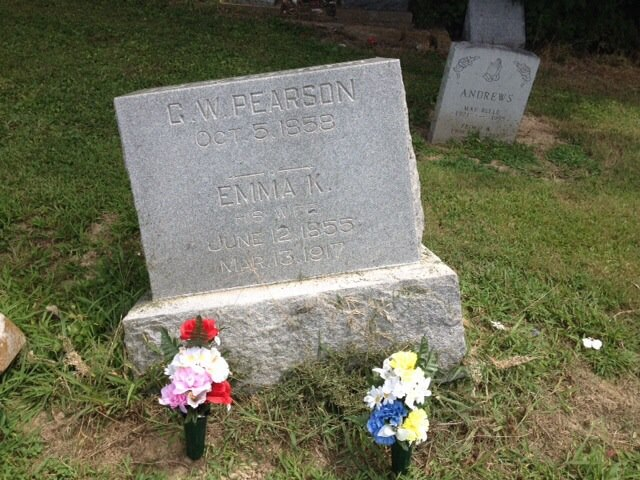I have been reviewing as many historical events as I can think of, and none of the major events are calling to me. I'm going to tell a story about everyday history. The farm life, which has changed dramatically due to machinery and an ever-evolving society, saw everything done by hand and by back-breaking labor in the 1890's by immigrants unfamiliar with a vast grassy landscape. From the narrow shop lanes and canals of native Holland to the wide-open prairies of North Dakota and Iowa, Dirk Winkel and Dirk TenKley didn't just witness the history of a changing American landscape, they helped to build it. And their children, my great-grandparents and their many siblings worked right along with them.
After traveling intermittently for 2 years, from Holland to Connecticut to Michigan to Iowa, the TenKleys set out for North Dakota where cheap land was offered for homesteading. The journey took months and was done in the ubiqitous covered wagon (with oxen too, not horses), and on arrival they lived in what was part cave, part lean-to. Their youngest daughter Bertha was born there. The following year the boys helped their father cut deep furrows in the sod and build a sturdy house from it, frequently called "soddies" by the settlers. There would have been endless dirt, mud when it rained, and little privacy, but a cousin wrote that Grandma was very happy to be out of the cave, with a proper door and extra space. It was snug, heavy insulation in the winter.
The children were noted to have been very busy in addition to helping with the soddy, keeping the farm both safe and well-supplied. It is not known is any of the children attended formal school in North Dakota or on their brief sojourn to Missouri, but Bertha, the youngest daughter, was in the intermediate class at the Dutch school when the family returned to Iowa to stay. The children assumed suck farm tasks as twisting bundles of grasses or collecting buffalo chips to burn in the hearth or stove for heat. They gathered nuts in the forest in Missouri. Every hand was useful., as a family's survival depended on everyone's participation. While in Missouri, they also felled trees from the land and sold them (often for a pittance) to the expanding railroad.
I've read also about prairie fires and locust or grasshopper storms - my family contended with those too, and there is a story of Grandma TenKley hearding both the children and the animals into the soddy for safety. Traditionally, the far end of a soddy was also the barn. It was certainly a long way from a Febreeze-scented den. They stayed long enough in North Dakota to see the building of and congregate in it's first Reformed Church.
The Winkels (as noted by their name meaning "shop" or "shopkeeper") were more town dwellers. Dirk Winkel was a shoemaker who rented space in the shops of larger retailers, and the brother-in-law he'd moved to America to join was a blacksmith prior to the latter man's death. Winkel's younger daughter Jo was a purveyor of a millinery shop. In a community founded and populated by the Dutch, I can imagine that the millinery supplied many linen and lace caps, perhaps also traditional ashion-forward hats for men and women. When I learned of Jo Winkel's shop and classified ads placed by sisters Elsje and Bertha TenKley to take in sewing, I wondered if this is what cemented these two families together with the marriage of two of their members. Likely it was church and other social events, but trade may have played a role as well.
This is what excites me about genealogy - the little details of life, the daily living and character of my people. They were all so much more than their names and dates. I can imagine them surveying good crops and those with damage. Rejoicing over births and mourning deaths, together. Though I've been to Sioux Center, Iowa in about 2015, I can imagine it in 1915. I've even spent a small amount of time bemoaning that we no longer have a shoe repair shop in my city.





No comments:
Post a Comment